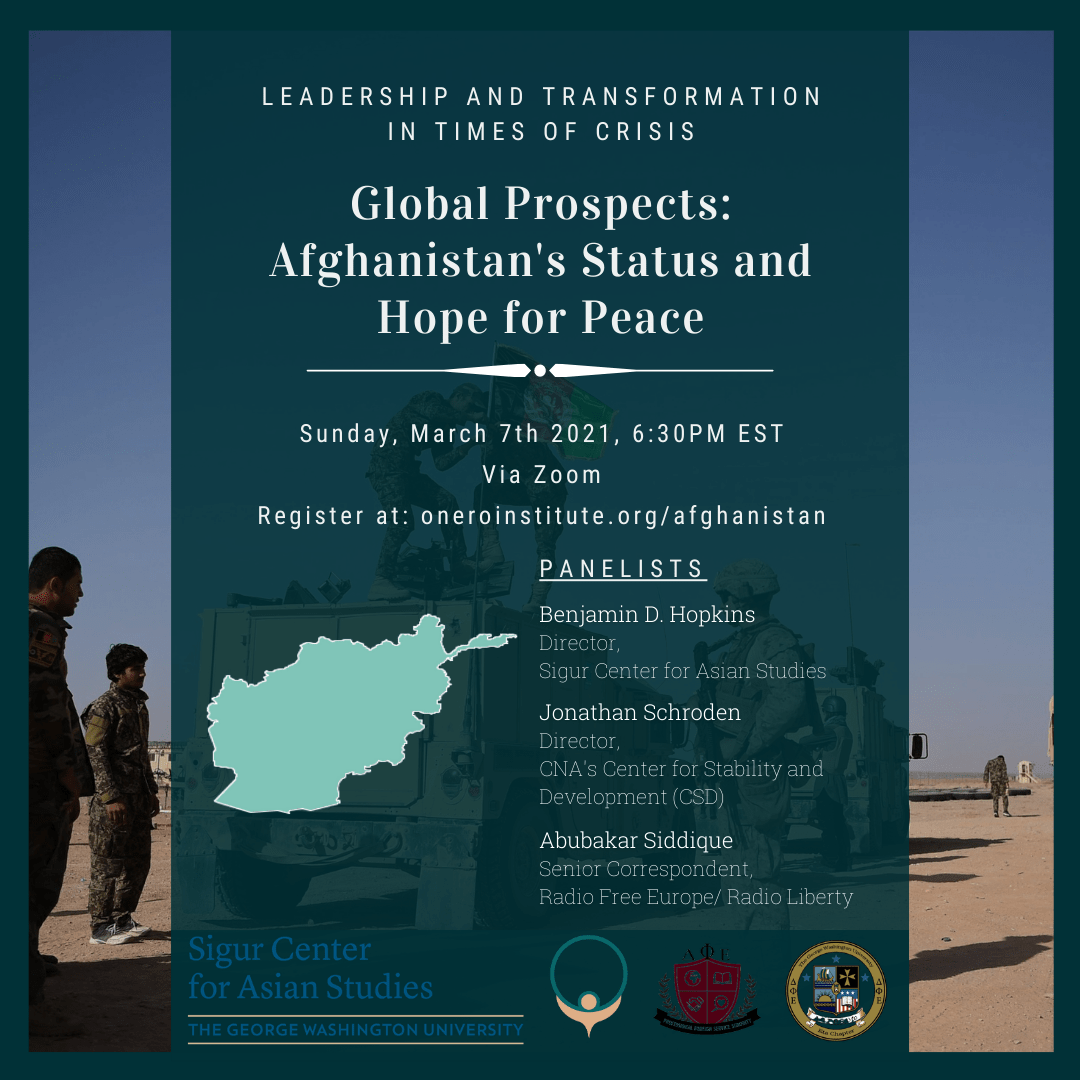
Sunday, March 7, 2021
06:30 PM EST
Zoom Events
For almost four decades, Afghanistan has experienced ceaseless violence and political turmoil. Between 1979 and 1989, Afghan mujahideen fought against the Afghan central government and its Soviet backers. The 1990s saw the fall of the Democratic Republic of Afghanistan and the rise of mujahideen-led governments including the Taliban. In 2001, US and coalition forces invaded Afghanistan and ousted the Taliban regime. Nearly two decades later, the US is still embroiled in the Afghan quagmire. The US and Taliban signed an agreement in late February of 2020 outlining provisions for an American withdrawal. In September, Taliban and Afghan government representatives met for peace negotiations that continue today.
This event, Global Prospects | Afghanistan’s Status and Hope for Peace, is part of the 2021 DPE Symposium and Global Prospects Virtual Series: Leadership and Transformation in Times of Crisis. The series addresses the challenges brought globally and regionally by violent actors and their political, economic, and cultural effects. Afghanistan has faced decades of violence that have shaped it in these domains. With the 2020 US-Taliban deal, and peace talks between the Afghan government and Taliban, Afghanistan is at a major crossroads. In this discussion, we will speak with Benjamin Hopkins, Director of the Sigur Center for Asian Studies, Jonathan Schroden, Director of CNA’s Center for Stability and Development, and Abubakar Siddique, a Senior Correspondent at Radio Free Europe/Radio Liberty, about the current situation on the ground in Afghanistan, how peace talks have progressed, and what an American withdrawal means for the country.
This event is co-sponsored by the Onero Institute, the Sigur Center for Asian Studies, and the Delta Phi Epsilon professional foreign service fraternity and sorority at GWU. The webinar will be free and open to the public.

